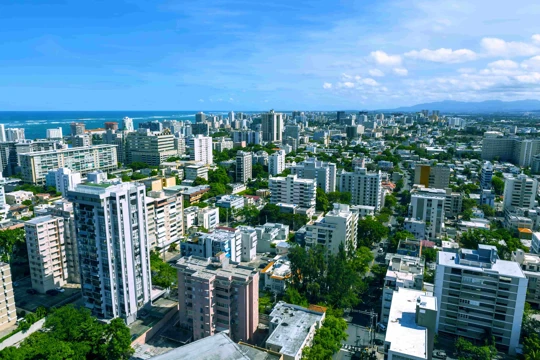Protecting your wealth
3 minute read
20 Jun 2022
Investment
Protect your wealth in emerging economies
Despite it being two years after the peak of the COVID-19 pandemic and its severe knock-on effects on the global economy, some markets have struggled to recover due to a combination of factors. Politics, soaring inflation rates, debt, and currency volatility are just some of the reasons why emerging economies haven’t bounced back. As a result, it can be hard to know what to do with your money or how to safeguard it in a developing economy.
The post-pandemic economic problem
The pandemic accelerated borrowing money across the world. Large, developed economies had the reserves to give their citizens stimulus checks, tax reliefs and other benefits to tide them over during one of the most unsteady periods during recent history.
However, whilst these rich countries had the facilities to weather the COVID-19 storm, most emerging economies did not, which meant they had to borrow – and therefore get themselves in debt – from these countries.
Most of the cash borrowed was in US dollars, as it is widely accepted to be the global reserve currency. Whilst this injection of money was very much needed, emerging economies are now struggling to pay back their debts.
For example, Sri Lanka has almost $7bn in interest and debt due to pay this year, but only has around $3bn in reserve. A lot of countries in this situation will most likely have to default on their payments. Sri Lanka wouldn’t be the only country to default – since the pandemic, Argentina, Belize, Ecuador, Lebanon, Suriname, and Zambia have all defaulted.
Inflation has risen sharply across the world, more so in developed countries rather than emerging markets. This will have a devastating knock-on effect on debt repayment; a strong US dollar means it will be harder for these emerging countries to clear the debt they incurred during the pandemic.
Latin America: two sides of the same coin
Argentina, which defaulted, is a country going through a period of extreme hyperinflation; residents spend their paychecks as soon as they receive them because the price of goods can astronomically jump overnight. Meaning there is no guarantee of affordability from one day to the next. In fact, economists have revised their inflation estimates for Argentina to an astronomical 72.6%, a figure that could easily increase as the year passes.
However, there is hope in the region. Although Ecuador defaulted last year, many believe that the new president – a former banker – will usher in much-needed economic reforms. The country’s oil reserves have provided a windfall as the world weans itself off Russian oil due to the Russia-Ukraine war.
Other countries in the region will be affected by other outcomes; for example, Colombia – long viewed as one of the most stable LatAm economies – has yet to decide on its president. The two contenders couldn’t be more different; one is a leftist ex-guerrilla and the other is an independent, conservative populist. The outcome of this election will determine which way the economy goes.
Another election in the region is also afoot – Brazil is gearing up for a presidential race that will greatly affect its economy. Whilst the country has a significant foreign exchange reserve and deep local markets, productivity in the country has slumped. Causing the economy not just to slow down, but plummet in relation to developed economies.
This is largely seen as Jair Bolsonaro’s fault, leading his opponent, Luiz Inacio Lula da Silva, to race ahead in the latest polls. Lula is a left-wing, former president whose previous economic policies helped millions of people escape poverty and is likely to invest in public spending.
In contrast to Bolsonaro, who has been criticised throughout his tenure due to his mismanagement of the pandemic, which caused Brazil to have one of the highest death rates in the world, as well as the amount of deforestation that has occurred since he took office.
According to Bloomberg, more than half of Brazilians believe the economy is one of the most important factors when electing the next president – worrying news for Bolsonaro, as Brazil’s monthly inflation has surged to a 28-year high.
Similarly to Brazil, other countries across the region are experiencing all-time high interest rates. Chile is going through its highest inflation rate since 1993, Mexico’s inflation is at a 21-year high, and Peru has seen its inflation rate creep up to a 25-year high. In fact, Peruvians have taken to the streets to protest this quarter of a century high.
Safeguard your wealth
With so much uncertainty in the world and the current economic stagflation, it can be difficult to figure out what to do with your money. The US dollar is set to remain strong, especially compared to currencies in emerging market.
At Zenus Bank, you can open a US bank account to keep retain your wealth in USD. This could provide a secure alternative to holding your money in local currencies which may fluctuate depending on political, economic, and other external events.
As the USD is accepted as the global reserve currency, so it is likely to weather any economic uncertainty compared to local currencies. But whatever you decide to do to protect your assets, it’s worth keeping up to date with current events as anything could change and potentially have a knock-on effect on entire currencies and countries.



